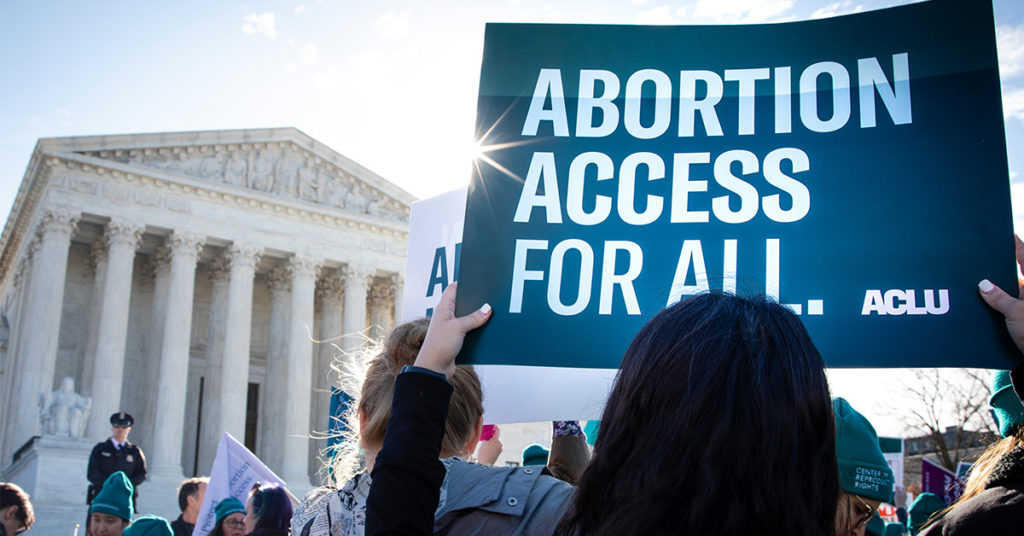What comes next if the Supreme Court does decide to rule in the state of Mississippi’s favor in Dobbs v. Jackson, as expected, and subsequently overturns Roe v. Wade?
The most likely first changes will be that Republican led states will ban abortion entirely. Thirteen states already have “trigger laws” on the books, which would immediately ban first and second term abortions in the event that Roe were overturned at the federal level. Those states are: Arkansas, Idaho, Kentucky, Louisiana, Mississippi, Missouri, North Dakota, Oklahoma, South Dakota, Tennessee, Texas, Utah, and Wyoming. But an overturn of Roe would be expected to undermine abortion access in at least 11 others, if not more. The Center for Reproductive Rights counts 24 states as likely to ban abortion access, while the Guttmacher Institute puts the number at 26.
These bans would eliminate abortion access in those states, but would not, of course, eliminate access in states where women’s reproductive rights are valued and protected. In those states, where abortions will remain legal, many lawmakers are already pledging to welcome women seeking reproductive healthcare “with open arms”, including offering protection to those who come from states that have enacted draconian laws seeking to punish women for exercising their right to choose. (States like Texas, Oklahoma and Idaho, which have recently enacted legislation encouraging mercenary lawsuits against woman and healthcare providers who perform abortions after about 6 weeks.) Thus, according to The New York Times, overall US abortion access would ultimately only decline by about 10-14%.
“Some women seeking abortions could get them in other ways, including traveling to a state where abortion is legal or ordering pills online from outside the country. Texas provides an example. In September, a law went into effect banning abortion after fetal cardiac activity is detected, around six weeks. Abortions at Texas clinics fell by half. But many women were able to obtain abortions in neighboring states or by ordering pills, resulting in an overall decline of only around 10 percent.”
Further, access to abortion pills is expected to move online. Planned Parenthood offers extensive details on how to obtain and use these pills, and plancpills.org, is offering state by state info on how and where to access these options for maintaining a woman’s reproductive rights, even if she lives in a state with Trigger Laws on the books.

